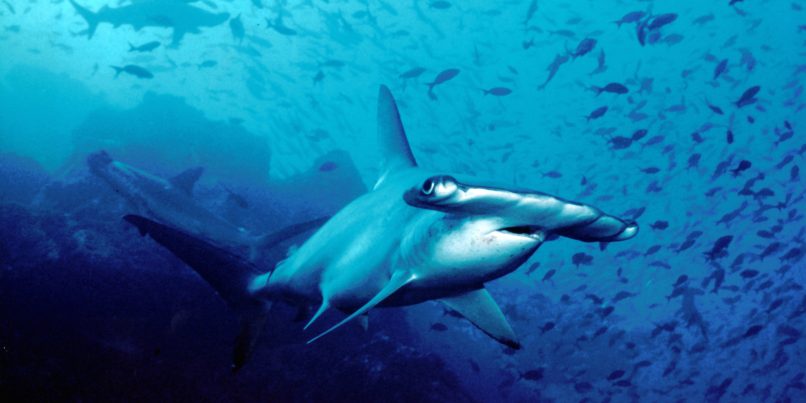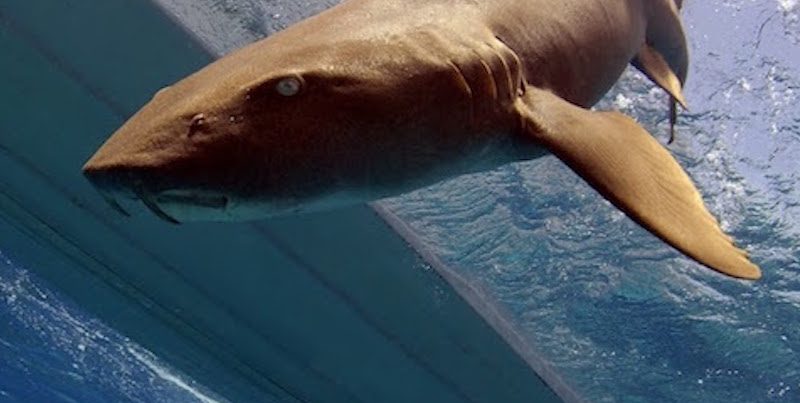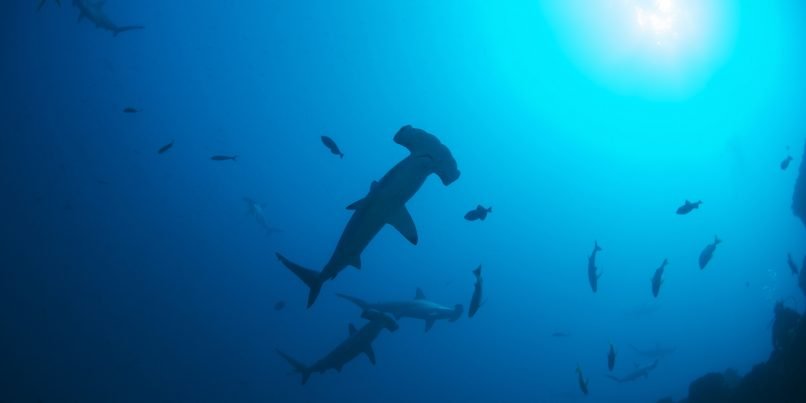International Marine Volunteers
Partner Profile: International Marine Volunteers | Smashing Stereotypes and Saving Great White Sharks
We are most afraid of that which we have not seen or what we do not know. The Great White Shark is no exception. Over the years, the film industry has done the horrific job of vilifying the shark, and media, in general, has created the terrifying image we are all too familiar with. Enter, International Marine Volunteers, a programme created by an eco-tourism company in South Africa. The main goal is conservation, however, along with that comes a better understanding of the shark, their role in a very important eco-system, and the smashing of stereotypes.
We had a few questions for International Marine Volunteers and are eager to share their responses with you. With information comes power, the power to protect a species, the power to change perception.
Tell us about the history of International Marine Volunteers.
The International Marine Volunteers (IMV) programme was started in 2007 by award-winning Fair Trade Tourism certified eco-tourism shark cage diving company Marine Dynamics Tours. The unique opportunity to work with the great white shark attracts 200 to 250 students per annum to the Dyer Island ecosystem in Gansbaai, South Africa. Here we have the opportunity to work with the Marine Big 5 – the great white shark, the African penguin, the Cape fur seal, whales, and dolphins. Volunteers work with tourists and alongside our marine biologists studying the great white shark and other species and participate in conservation and community projects of our owner established Dyer Island Conservation Trust. In 2016, IMV was Fairtrade Tourism certified. The volunteers now stay in a dedicated lodge that has four chalets, a pool, and recreational area. We also recently started offering NAUI scuba diving courses.
What excites you about hosting visitors on a Marine Dynamics Volunteer project?
The skills and cultural exchange that is brought to our programme is exceptional. The opportunity to showcase the incredible marine world of Gansbaai and South Africa. We also take great pride in being able to help volunteers gain experience that is beneficial to their CV’s and relevant studies, such as students studying marine biology or environmental/conservation degrees.
What makes for a great volunteer experience?
We have volunteers who just wish to enjoy the experience of being on the sea and working with the white shark, some who are more interested in the conservation work and some studying marine biology. The programme suits all these needs. The volunteers form an integral part of our team and we have many returning repeatedly to work in this unique area. They are part of our family and make a big difference to our work and lives. Many have gone on to work more closely with us and are our best ambassadors for our conservation efforts and the species we work with. The volunteers also enjoy sightseeing, make lifelong friends and leave with unforgettable memories.
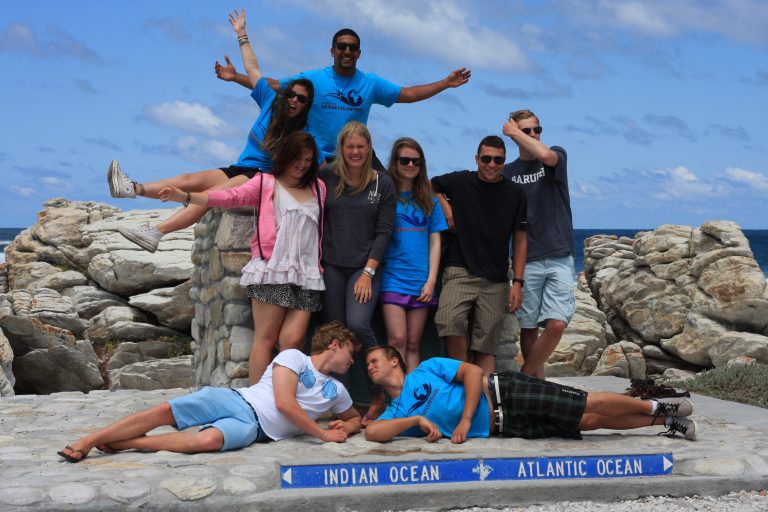
What qualities do you look for in potential volunteers?
Ideally, those looking to make a difference with a passion for the sea, wildlife, and environment. Our mission is to inspire our volunteers to make a difference in the world around them by providing them with life-changing opportunities and experiences, and creating awareness that marine eco-tourism, conservation, community, research, and education can all dovetail into a sustainable and mutually beneficial relationship.
What unique experiences can volunteers look forward to on the project?
Marine Dynamics Tours together with sister company, Dyer Island Cruises, offer five-star shark cage diving and whale watching eco tours in the unique Dyer Island ecosystem of Gansbaai, Western Cape. With onboard marine biologists, guests receive an educational experience Through our environmental project, the Dyer Island Conservation Trust, we are making a real difference for conservation and the community by:
– conducting effective science on marine species through daily observational data to translate into evidence-based conservation initiatives and legislation (primarily white shark research) – conservation projects for the survival of the African penguin including a dedicated rehabilitation center- the African Penguin and Seabird Sanctuary – supporting community education with an emphasis on dedicated groups of students that we work with for three years
Volunteers are involved in all our conservation projects while also working on the commercial boats gaining experience in tourism and an understanding of marine biology.
Our volunteers also get to:
- Work with the community in various ways
- Help assemble and clean our unique fishing line bins
- Participate in regular beach clean ups
- Contribute to the shark egg case project
- Help in animal rescues and strandings
- Observe dissections
- Do kelp dives
What environmental changes have you seen during your time running International Marine Volunteers?
The Dyer Island ecosystem is critically important. The 20ha Dyer Island – managed by CapeNature – is home to the endangered African Penguin and fifteen other seabird species. Its importance is recognized by Birdlife International and classified an Important Bird Area (IBA). About 60 000 Cape Fur Seals are resident on Geyser Rock opposite the island and they attract the densest population of Great White Sharks in the world.
The many sheltered areas of the bay provide the breeding ground for the Southern Right Whales that migrate here from the sub-Antarctic islands between June to December each year. The area is also visited by Bryde’s and Humpback Whales as well as various dolphin species.
Over the years and assisted by our daily observational monitoring, we have seen shifts in the system. This includes, but is not limited to, the continued decline of the African penguin; orca predation of white sharks and an overabundance of Cape fur seals; a decline in fish stocks; an increase in marine pollution; unusual species washing up in the area; poaching of abalone; kelp overgrowth.
It is our priority to ensure the marine life in the area flourish and remain for many years to come. We aim to protect the long-term future of the species which live here, by translating our scientific knowledge into evidence-based conservation initiatives and legislation and continuing our educational efforts.
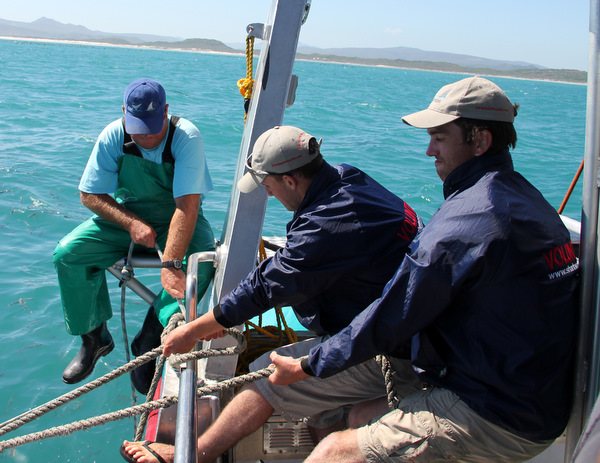
What cultural or social changes have you seen in the local communities in their perception of Great White Sharks?
Our volunteers have the opportunity to engage with the Dyer Island Conservation Trust’s Environmental Education Programme (DEEP) in which young learners are educated for three years enabling the team to monitor and evaluate the impact and growth of each and every individual. These children are ambassadors for the difference we make in the environment we operate in. We opened the African Penguin and Seabird Sanctuary in February 2015 and this rehab center is open to the locals and the public free of charge. We host marine evenings for the local community with different speakers to educate them about the marine world.
In an area of high unemployment, the great white shark has become a key species that through shark cage diving creates employment thus leading to positive perceptions from the community.
What Great White Shark trait is the least understood?
White sharks are still misrepresented and shark incidents are in fact rare. This misunderstood apex predator essential for a healthy ecosystem. We are fortunate that every day we have the opportunity to challenge and change these perceptions with our clients.
What are your greatest challenges as you lead your volunteer projects?
The changing dynamic of white shark sightings and inclement weather conditions means we have to ensure we have a full programme that is not entirely dependent on being at sea every day. The volunteers receive educational talks by our team of marine biologists, work at our African Penguin and Seabird Sanctuary, do beach cleans up, make fishing line bins, work with our children’s programme, can do dive courses and participate in kelp dives, and enjoy some sightseeing. We have a team of people to take care of them and we continually strive to improve the programme.
If you weren’t leading a volunteer operation what would you be doing?
Our commercial and conservation activities would continue but we would certainly miss the input of our volunteers who bring further energy to our work.
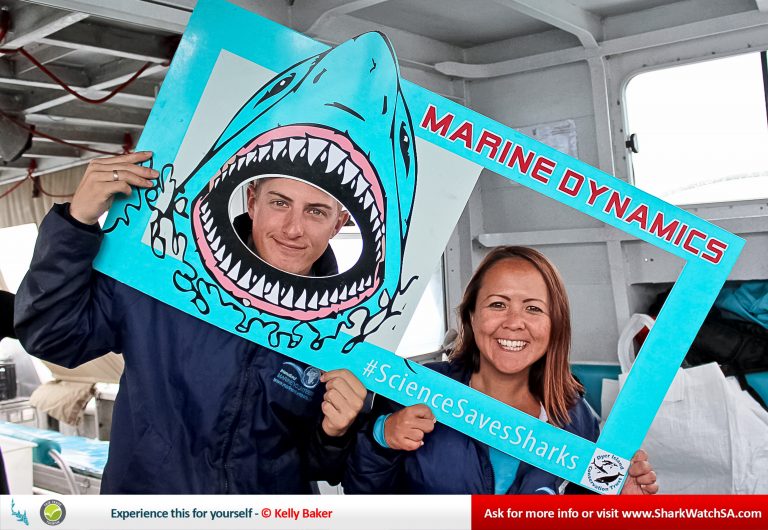
If you could hop on a plane and go anywhere in the world for a vacation, where would you go?
The Antarctic for its diversity of wildlife in what is still very much a pristine environment.
What’s the future for International Marine Volunteers?
We hope in time to have a dedicated marine education center and are looking at a training academy to enhance skills required to work in the marine arena. We always look at ways to enhance the programme such as offering dive courses. Our priority is to ensure our volunteers leave with a passion for the ocean.
In the words on one of our volunteers and marine ambassador, Henri:- “I have such a deep passion for the great white shark and conservation in general. It has opened my mind to a lot of things, to a deeper understanding of why we are doing this work, why it’s so important – to save the sharks, to save our ocean.”
To learn more about the International Marine Volunteers program, visit their page on SEEtheWILD and GoVoluntouring. You may also learn more at their website. Don’t forget to like them on Facebook, and follow them on Twitter & Instagram for exciting photos of their program.
Check out this amazing video of what you can expect by volunteering with International Marine Volunteers:

